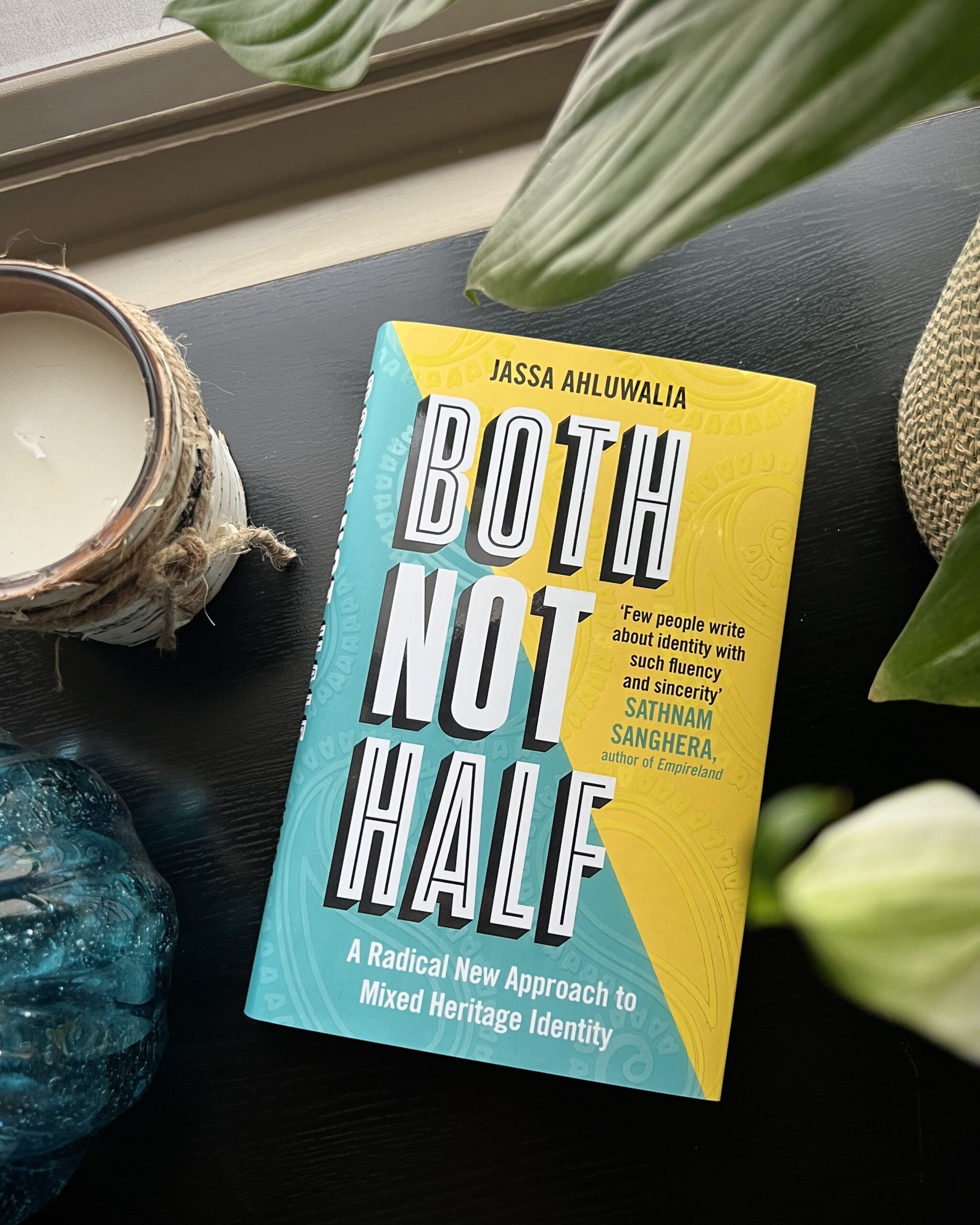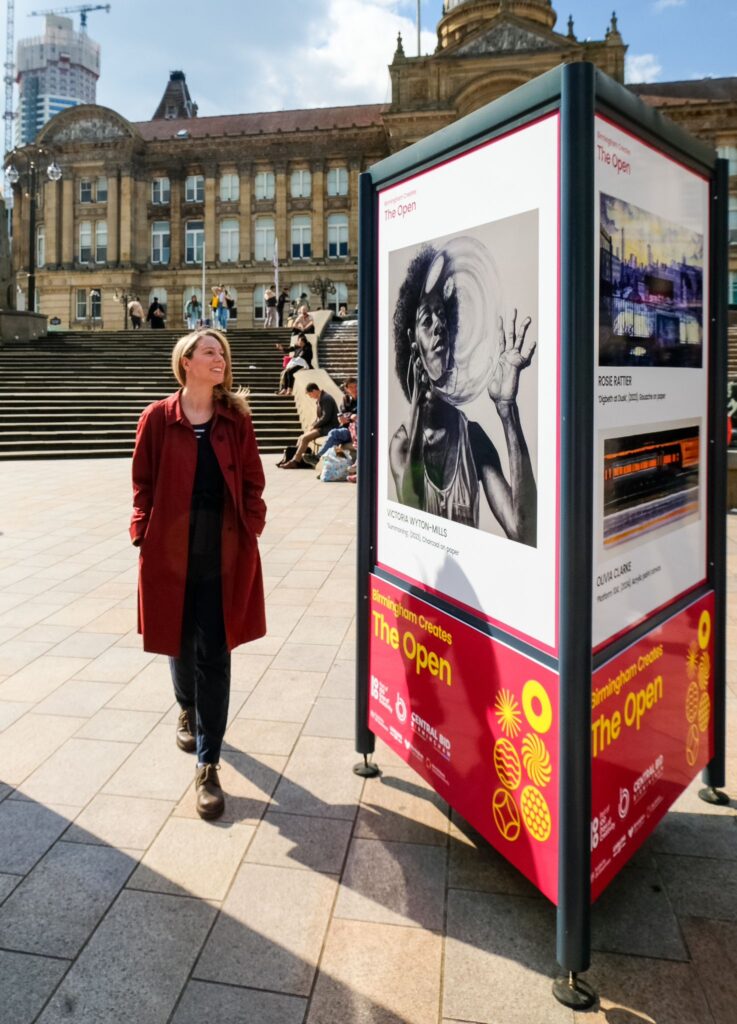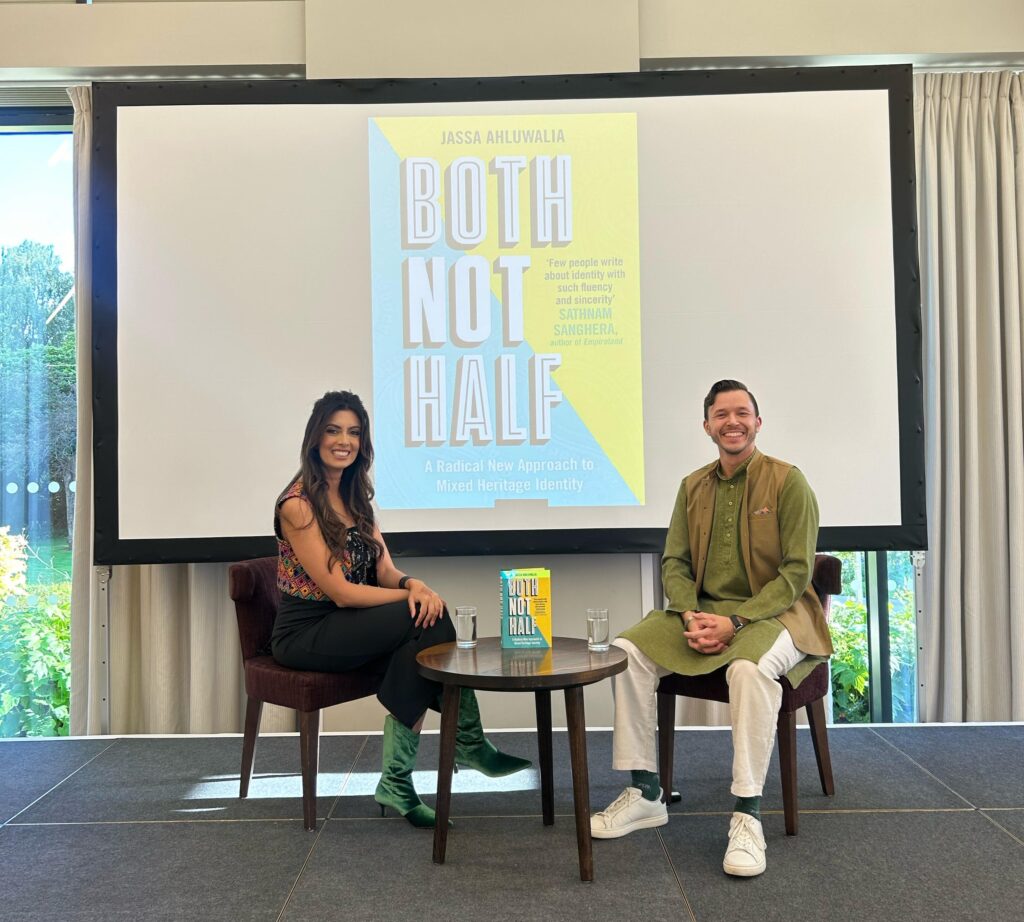
“So much of this book was about finding answers”, says actor, writer and filmmaker Jassa Ahluwalia, who sits on stage at the University of Birmingham. He is speaking about Both Not Half: A Radical New Approach to Mixed Identity, which he has spent the last three years writing.
The event has been organised by The United Kingdom Punjab Heritage Association (UKPHA) which is dedicated to preserving and promoting Punjabi heritage and culture. During the pandemic they started a book club, allowing members to hear from notable authors including Anita Anand, Sathnam Sanghera, and Meera Syal.
Tonight’s discussion has been produced in conjunction with the University of Birmingham’s Culture Forward network, which aims to bring the University, the City, and Birmingham’s cultural organisations into closer and more creative collaborations. Having connected both parties, Professor of Sikh Studies Jagbir Jhutti-Johal says:
“UKPHA are delighted by the support shown by the University of Birmingham’s Culture Forward initiative in helping us to deliver our first in-person live book club event which is being held on campus.”
In the room are members of local communities who have come to hear from a Midlands boy done good. As an actor, Ahluwalia came to prominence as Rocky in the hit BBC Three series Some Girls, followed by starring roles in Unforgotten, Ripper Street, and Peaky Blinders.
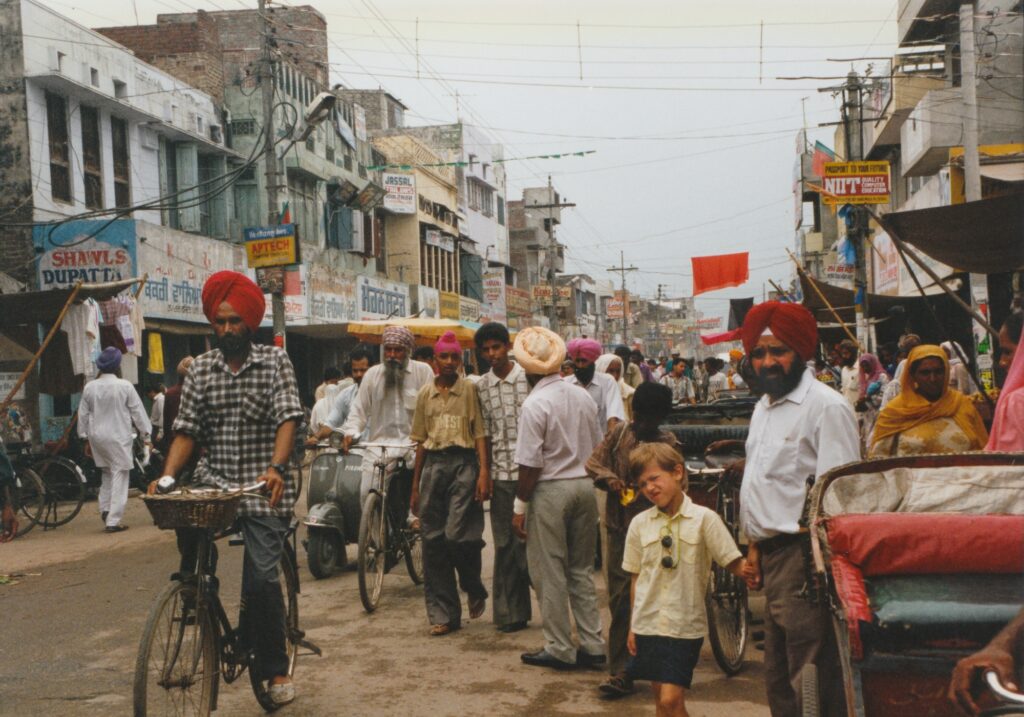
He was born in Coventry to a white English mum and a brown Punjabi dad in 1990. Raised in an extended family environment, and attending school in Leicester, Ahluwalia spoke English in the playground, Punjabi with his grandparents, and spent various summer holidays in India.
For a long time, he never questioned the label assigned to him: “half-Indian-half-British”. As a white-presenting man, his ethnicity didn’t seem to create challenges, on or off screen. However, he became increasingly aware that his Punjabi-ness was integral to his being, and something he felt compelled to explore as an artist.
Taking to social media, Ahluwalia created the hashtag #BothNotHalf to explore his dual heritage: “It came from a place of wanting to share with the world that I am not half, I’m both.” Capturing people’s imaginations, his reflections developed into a TEDx talk and a documentary, before being written down.
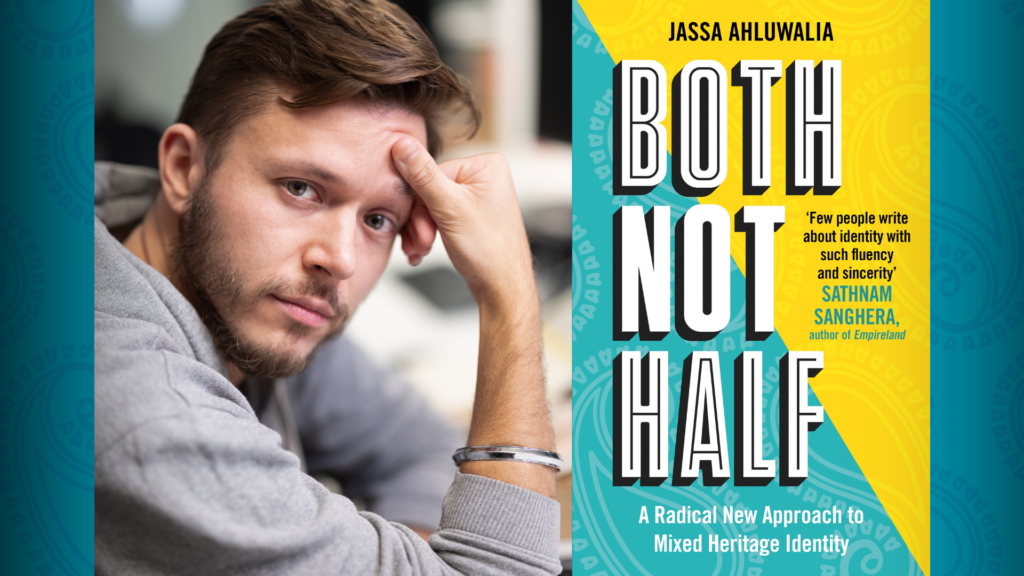
Initially, Ahluwalia sought to create his book for others, before coming to the realisation, “I needed to write it for myself, to make sense of myself”. Rather than projecting outwards, it forced him to look inside, and ask, “who am I?”.
Chairing the discussion, Noreen Khan draws out the story behind the title from Ahluwalia who describes it as “a quest”, in which he has sought answers about himself and a world which likes to put us in boxes. He hopes others will also use it as a map for their own journeys.
Speaking with sincerity, he doesn’t shy away from reflecting on the benefits of being white-presenting, either. “Even my name Jassa is ambiguous enough to be read as white”. On occasions he’s been mistakenly identified as Swedish – this anecdote gains a laugh.
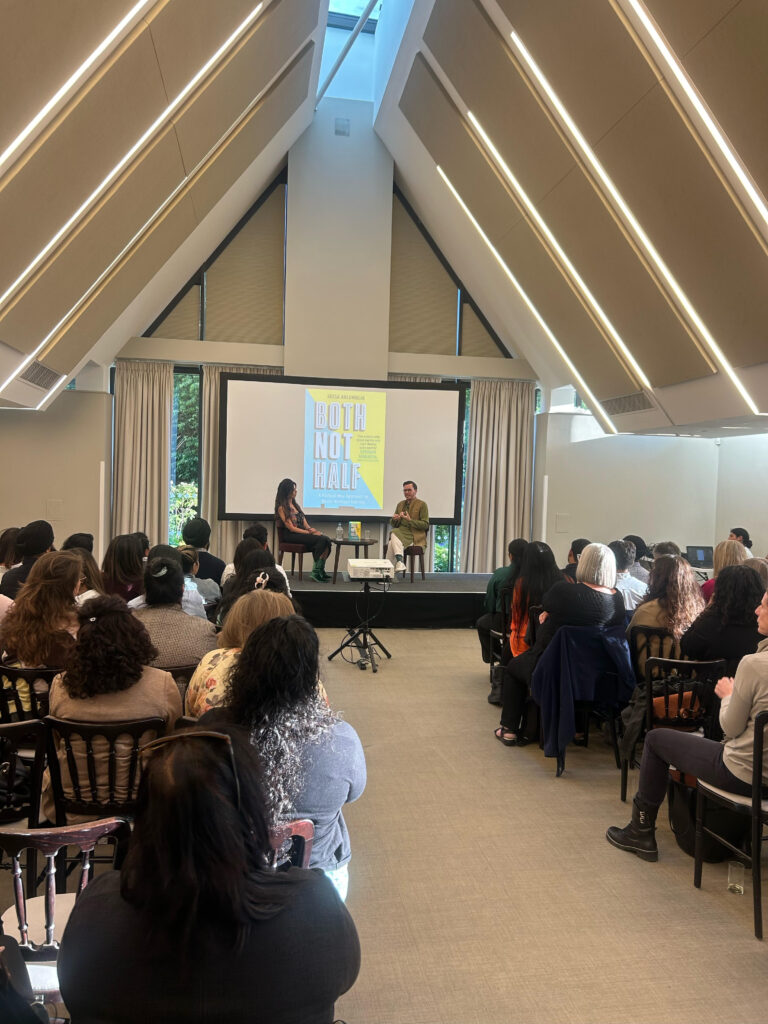
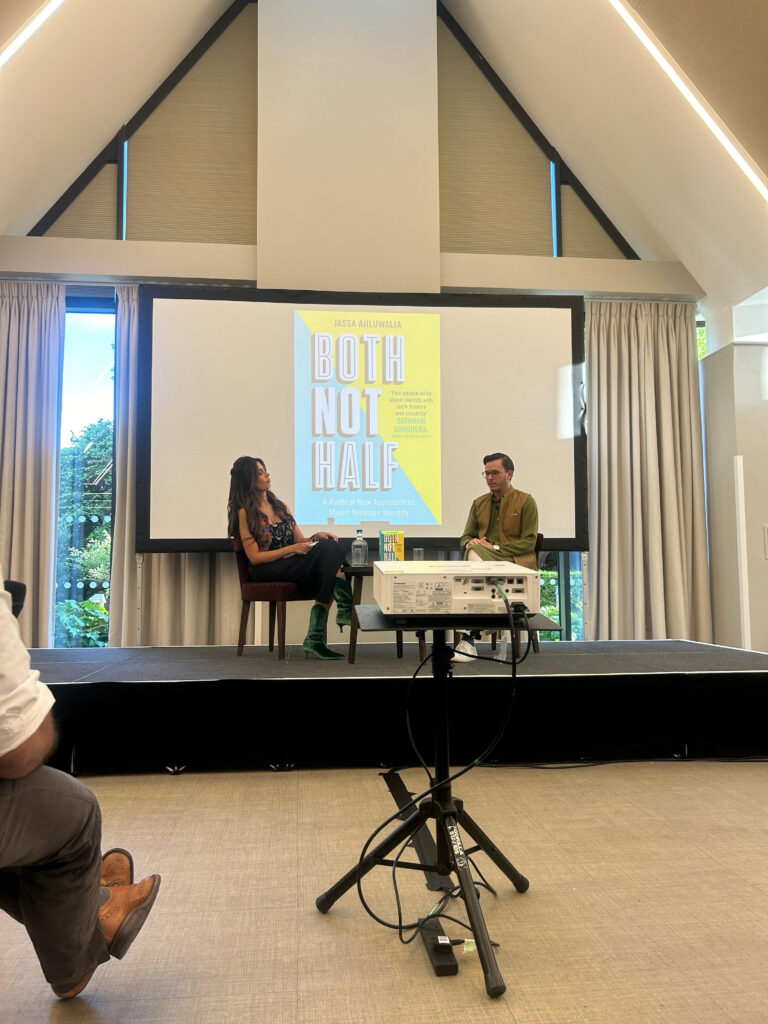
The engaging speaker also uses humour to address more difficult topics. “Why have I been given a platform? A white guy speaking Punjabi is shareable content, and I have been a curiosity”, he muses.
On other occasions, he has felt like an outsider. At one wedding he was looked upon as an intruder and “othered” because of his appearance. This was particularly hurtful, as he has always turned to culture as a means of connecting with his heritage – through eating Punjabi food, joining in with Bhangra dance, going to the Gurdwara.
As a child, he felt no need to explain an interest in Punjabi heritage – “I could just be.” But, while the author was “raised with bothness by family”, he explains that “the world has not been set up for bothness.”
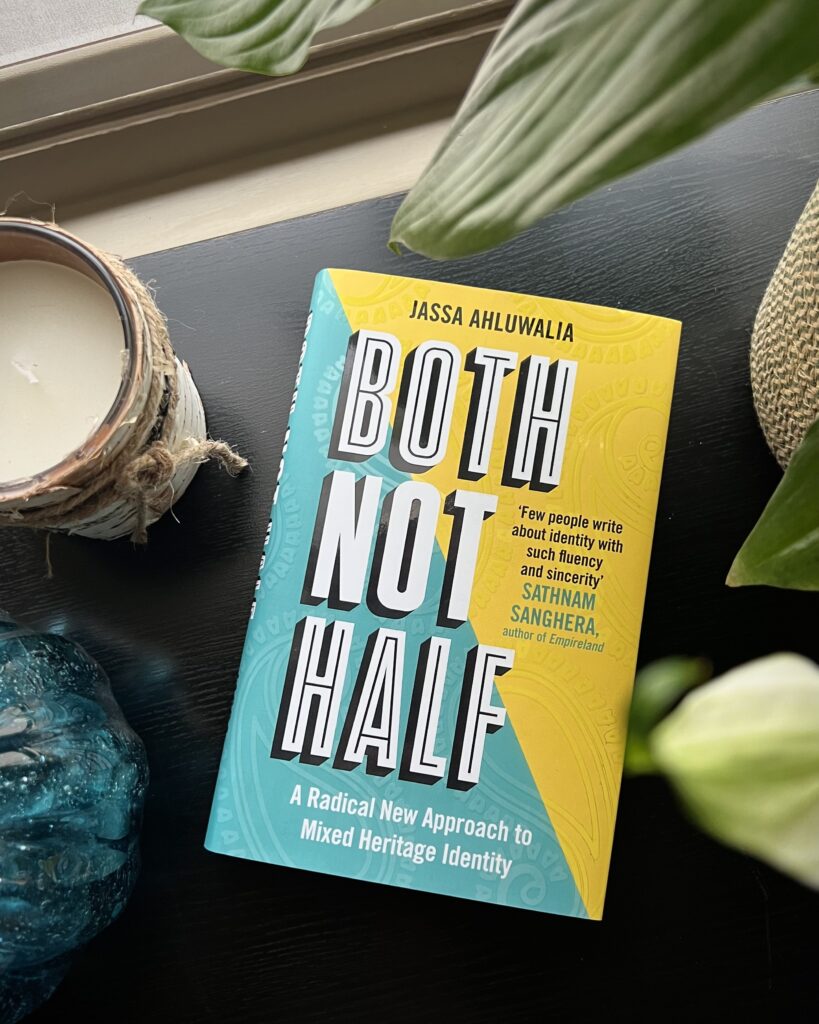
Part memoir, part manifesto, his book invites a “new way of looking at the world as both not half”. When asked by an audience member about the best ways to ensure their children keep connected to their heritage he advises:
“Transmission of culture shouldn’t feel like an obligation, but it should come from a place of love and understanding that identity is constantly evolving.”
He highlights how important the book club has been in connecting him to his heritage and increasing his confidence: “UKPHA’s support and the work they do is what made it possible for me to believe I could become an author. They have consistently inspired me and always given me a sense of home, belonging and community…the essence of what Both Not Half is about.”
Following the event, he tells me what an invitation to speak within the University’s redbrick walls has meant:
“As a university drop out, it is deeply validating to have been given a platform by the University of Birmingham, though I am profoundly saddened that this comes at a time when arts and cultural organisations in the city are facing 100% cuts to their budgets. The arts are how we express belonging, and that is what we experienced on Monday. We shared in joy and sorrow as part of a collective effort to better understand ourselves and imagine a future in which all of us can be whole and multiple. None of us can be ‘both’ when funding is being halved. That is why my book is not simply a memoir, but a call to action. It is a campaign for belonging in a divided world. And I’m deeply grateful to the University for giving me a stage from which to make my rallying cry.”
To find out more about Culture Forward’s programme of events, please visit www.birmingham.ac.uk/research/culture-forward
